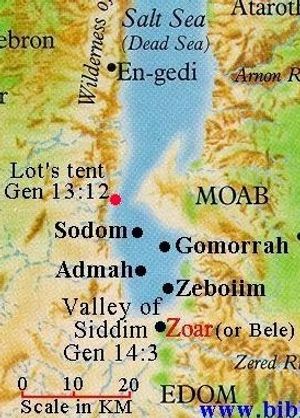Franciscan Fractal
Contemplating Today’s Culture through the Eyes of St. Francis & the Life of Christ
“Remember Zoar”
“My people are bent on turning away from me. How can I give you up, Ephraim? How can I hand you over, O Israel? How can I make you like Admah? How can I treat you like Zeboiim? My heart recoils within me; my compassion grows warm and tender. I will not execute my fierce anger; I will not again destroy Ephraim; for I am God… and I will not come in wrath.” Hosea 11:7-9a
Most people recognize the names of “Sodom and Gomorrah.” There is much intrigue about what happened to these two cities and why. While sexual immorality is often ascribed to the two, destruction was actually predicated on violating the laws of hospitality at that time. Both cities had ventured into the abyss of absolute corruption with regard to how they treated people.
Regarding strangers, they mercilessly abused them, stole their belongings, and refused to offer any form of hospitality. They lacked compassion for the poor, took advantage of the needy, and thought only of their own gain. These forbidden practices contradicted any rule of hospitality in a country where survival deeply depended on the actions of others.
What is often missing in the Sodom and Gomorrah story are the other cities that were also targeted for destruction. Three other cities on the plain at the southern end of the Dead Sea were initially slated for destruction by God. They included Admah (meaning red soil), Zeboiim (meaning gazelle or hyena), and Zoar (meaning small or insignificant).
Zoar, however, was the sole city that God eventually spared when he destroyed Sodom and Gomorrah with fire and brimstone. It was the place that Lot and his daughters fled to escape the destruction on the plain. (Genesis 19:21-22)
In a passage from Hosea, God looks back (almost in sorrow and with regret) on what has transpired. Ephraim was removed as God's choice to lead the tribes of Israel, and the tribe of Judah was chosen instead with Mount Zion as God’s new dwelling place.
“He rejected the tent of Joseph;
he did not choose the tribe of Ephraim,
but he chose the tribe of Judah,
Mount Zion, which he loves.” Psalm 78:67-68
Ephraim and the ten Northern Tribes of Israel were eventually conquered by the Assyrians in c. 723 BCE. Its population was carried away, and the former kingdom never re-emerged.
In the Hosea passage, the prophet makes reference to Israel turning away from God. Hosea expresses God’s sorrow for leaving the Northern Tribes. The prophet writes, “How can I give you up, Ephraim? How can I hand you over, O Israel?” And, God is not willing to destroy Israel like Ephraim. God cannot utterly annihilate them like the people who lived in the cities of Admah and Zeboiim. Both cities were consumed in fire along with Sodom and Gomorrah. God shows compassion and mercy.
The city of Zoar's survival amidst the destruction of Sodom and Gomorrah highlights God's mercy. It shows that there is a refuge place for those who seek God. The little town whose name has long been forgotten in history has now become a place of salvation. That seems to be how God works – in the small hidden places in the world where no one would expect God to appear.
Refuge is always offered. It is often just not in the places that we expect. God frequently dwells in the veiled places of this world. At the same time, God’s compassion flows forth protecting and securing us in our journey.
If you feel that God has abandoned you or is not present, look again. God is there. You may find God in the insignificant places of your life where you may not have expected to find God – like in a city of refuge named “Zoar.”
Prayers and Blessings,
Fr. John


